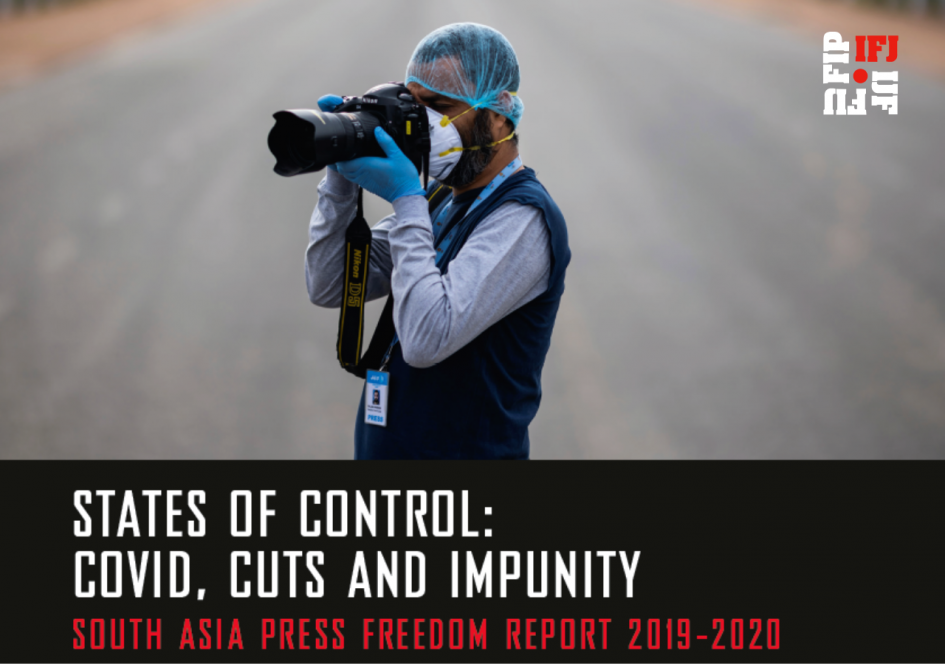Pandemic and the press: As Covid-19 made a deadly sweep across the globe from the beginning of 2020, governments in South Asia have also tightened an iron grip over the media and democratic institutions. Media violations continued under the pandemic with an increase in digital controls, restricted access to information, amped up surveillance and arrests and detentions. Read more here.
Digital Controls: Across South Asia, repressive measures are receiving legal and even social sanction as governments enact more and more stringent laws and regulate online content in the name of tackling fake news, protecting national security or, most recently, public health as in the ongoing coronavirus pandemic. Read more here.
Attacks on media: The IFJ and its affiliates documented 219 violations against the media. This includes 52 jailings or detentions, 19 threats to the lives of journalists, 65 non-fatal attacks, 35 threats against media institutions, 8 gender-based attacks and 82 threats or attacks on rural, regional or minority journalists. Read more here. A robust monitoring system to defend and protect journalists from being targeted for their work, harassed or intimidated remains crucial for the IFJ and journalist unions.
Read more here.
Covid-19’s “great confinement” is challenging freedom of expression in ways never seen before in South Asia. In its 18th annual review of media freedoms in the region, the 2019-20 IFJ South Asia Press Freedom Report, launched on May 3, shares the experience of South Asia’s journalists in the thick of an invisible viral war as essential workers for truth and freedom of expression. The report was jointly launched on World Press Freedom Day by the International Federation of Journalists (IFJ) and the South Asia Media Solidarity Network (SAMSN), supported by UNESCO, the Media, Safety and Solidarity Fund (MSSF) and the Norsk Journalistlag (NJ).
Read more here
Download the full report here
Read national reports here: Afghanistan, Bangladesh, Bhutan, India, Maldives, Nepal, Pakistan and Sri Lanka

Leave a Reply